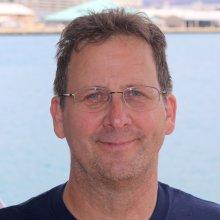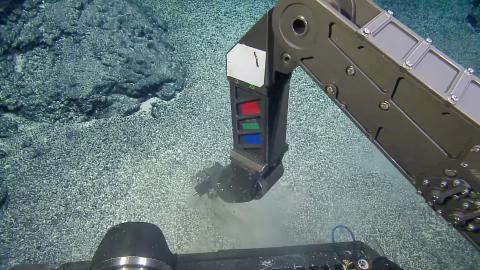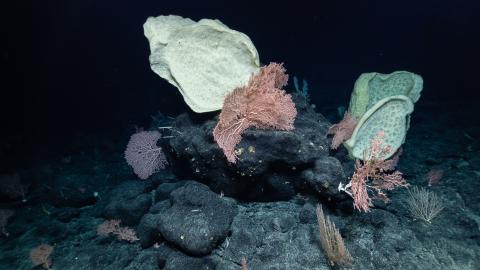
Robert Pockalny
Tell us about your work/research. What kinds of things do you do?
I utilize a suite of geophysical data (e.g., bathymetry, side-scan/back-scatter, gravity, magnetics, and seismic) to characterize the processes and 4-D architecture of the oceanic lithosphere along with the world-encircling mid-oceanic ridge system. My primary focus is the spatial and temporal characterization of the seafloor morphology, potential field data, geologic structures and plate tectonics of these terrains. In addition, the use of near-bottom observations from submersibles or ROVs are required to ground-truth many of my observations/models. I have also been Co-Principal Investigator on several NSF- and ONR-funded, education and outreach programs, including SURFO (Summer Undergraduate Research Fellowships in Oceanography) and GEMS-Net (Guiding Education in Math & Science Network), STEM+C Computer-based Science Instruction.
What sparked your initial interest in your career?
When I went off to college I thought of becoming a marine biologist or medical doctor but realized I loved geology after taking an introductory course. The instructor of my oceanography course also showed the percentages of people getting jobs in marine biology versus marine geophysics, so I set my sights on geophysics. I didn't realize I wanted to become a "marine" geophysicist until I spent a summer in college doing fieldwork in Newfoundland.....that's when I realized I hate bugs that bite. I figured there are no bugs at sea, so that is where I headed.
Who influenced you or encouraged you the most?
There are really too many people to "blame" to identify just one. My undergraduate professor Bob Jacobi gave me some early opportunities. My graduate school advisors Jeff Fox and Bob Detrick also provided great guidance. Finally, Roger Larson was a wonderful mentor and friend once I had finished graduate school.
What element of your work/study do you think is the most fascinating?
Solving complex puzzles. I love taking multiple data sets and data types and merging them to address an unresolved issue.
What other jobs led you to your current career?
I pretty much went from graduate school where I studied marine geophysics to where I am today where I still study marine geophysics, as well as other topics including deep-life, coastal circulation, and geodynamics.
What are your degrees and certifications?
B.A. in Geology at SUNY Buffalo, Ph.D. in Oceanography at URI/GSO
What are your hobbies?
Fly fishing, hiking, basketball
How did you get involved with the Nautilus Exploration Program?
I have been tangentially involved with the Nautilus Program for several years as a resource onshore or mentoring the first group of HRP students. This cruise will be the first time joining the cruise and I am really looking forward to it.
What advice would you give someone who wants to have a career like yours?
Get a solid degree in a STEM field as an undergraduate and then go to graduate school to specialize in an ocean-related field. Along the way, be sure to take as much math and computer programming courses as you can, and don't forget the courses that help you to communicate your science in both written and spoken forms.
Expeditions
Robert participated in the following Ocean Exploration Trust expeditions:


